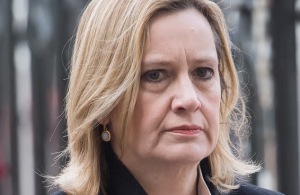
The UK home secretary Amber Rudd proposed in February 2018 a series of proposals to aid the treatment of domestic violence survivors in court. One measure seeks to make it automatic that victims of domestic violence will be eligible to give evidence behind a screen (to prevent them having to face their abusers).
Some DV charities such as Women’s Aid have welcomed the measures but highlight that domestic abuse survivors are still being subjected to the “abhorrent practice” of being interrogated by their abusers within the family courts. Katie Ghose, the chief executive of Women’s Aid, commented “We know that the cross-examination of victims in the family courts by their abusive former partner is far too common.’
The practice of abusers being permitted to question their partners was originally going to be prevented under the prisons and courts bill. However, this was side-lined when Theresa May called a general election.
Rudd’s proposals will form part of a consultation on what to include in the Domestic Abuse Bill. Amber Rudd commented on the consultation in the Times saying:
“It [the consultation] will ask how we can improve our response in the home, in the community, in the courtroom, through to public services, accommodation for women fleeing their abuser, as well as how we can strengthen our laws to stop perpetrators and when possible rehabilitate them.’
The new bill is described here.
However, there is an overhaul proposed by the Ministry of Housing, Communities and Local Government which includes plans to remove refuges and other forms of short-term supported housing from the welfare system. It is suggested this will result in vulnerable women fleeing abusive partners being unable to pay for their accommodation using their housing benefit. To put this in perspective on average housing benefit makes up 53% of refuge funding. It is anticipated the impact will be far reaching if these proposals go ahead.
